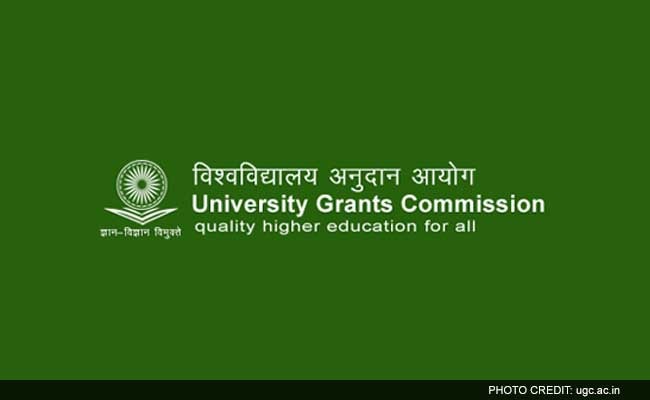
Academicians have questioned the centre's move to scrap University Grants Commission (UGC) and said politicians should not be involved in academic matters. Last week, the Human Resource Development (HRD) Ministry had released a draft regulation to repeal UGC Act, 1951 and to replace it with a Higher Education Commission of India (HECI). According to the draft, which has been placed in the public domain by the ministry to seek feedback from the stakeholders, the HECI will solely focus on academic matters and monetary grants would be under the purview of the HRD ministry.
Now the move has not gone down well with academicians and they accused of the centre government for trying to interfere in academic affairs
Prof. Sukhadeo Thorat, former UGC Chairman
"When the ministry says it will take charge of funding, we do not know if the administrative work related to the funding will be done by them or the [new body]. In either case, it is not advisable for funding to remain with the ministry. It is best for the regulatory body to release funds because funding is based on an academic exercise and they can monitor its use.
"And I think the autonomous character of an institution like the University Grants Commission should be maintained. The draft law recognises the importance of autonomy, but it is not a question of the autonomy of colleges and universities, it is also that of the commission".
Prof. Ayesha Kidwai, JNU
"It is clear that as per the new norms, the authorisation is going to be given and maintained not only on the basis of what a university has at that particular point of time, but it would be contingent on achieving a set of goals over a decade. We can expect these goals to be about resource-generation, a burden that will surely be passed on as fees and a cutback in recruitment, and most likely, by introducing all kinds of rubbish, short-term courses. This means compliance with the Centre's diktats will be essential from the word go, for both the older and newer universities."
Jayaprakash Gandhi, Noted academician
"The structure of the new body is such that it will give political parties more say in decision making regarding education, which should ideally be done by a group of core educationists and veteran academicians who can take the country forward."
Rajib Ray, DUTA President
"The present structure is being completely replaced without providing a detailed study of its founding goals, achievements, its shortcomings and their possible reasons and corrective measures taken or required to improve the health of the UGC. Even as the Government had to shelve proposal of creating HEERA because of opposition received, diamantling of the UGC to create a new agency looks like a quick desperate step in the same direction.
"It is also not clear how shifting grant functions to the Ministry will result in less interference. On the contrary, we fear that it will result in an increased direct interference by the Governments.
"The new proposed Act attributes almost identical functions to the Commission but additionally, an increased focus on accreditation and yearly evaluation of higher educational institutions will create a system of over-regulation.
"The proposed Act mandates the HECI to promote autonomy of higher education institutions. However, this cannot be achieved if the Commission is allowed to micromanage institutions by even deciding learning outcomes of courses of study.
Student Bodies Slam Government's UGC Move
"Further, the twelve membered Commission has no representation from SC/ST/OBC/PwD/Women. Reforms in higher education have to respond to the need of massification, accessibility and quality. Reforms should also necessarily respond to the social responsibility and it is important to have representation of various sections on the decision making body".
Professor Kapil Sharma, IGNOU
"Right from the admission process to the intake of research scholars -- attempts are being made by the government to interfere in each and every aspect. We agree that there were loopholes in the functioning of the UGC, but they should have been addressed on an institution-specific basis. That should have been done by the academicians in the higher education sector and not the government."
Sachin Nirmala Narayanan, teacher and Academic Council member, University of Delhi
"The government wants to withdraw from the duty of providing more inputs/infrastructure in higher education by talking about public-private-personal partnership and what not, and yet tries to reap suitable outcomes or, maybe, credulous subservience from these spaces of critical thinking by having absolute administrative and financial control.
"HECI will pave way for higher student fees and greater curb on dissent and freedom of expression of individuals and institutions. Moreover, the social relevance of public funded institutions is disacknowledged in the Act favouring the scope for further privatisation of higher education. It is nothing but the government consolidating, centralising and monopolising power in academic matters while ensuring a free run for private capital through legislative subterfuges."
(from an article published in outlookindia.com)
Click here for more Education News

